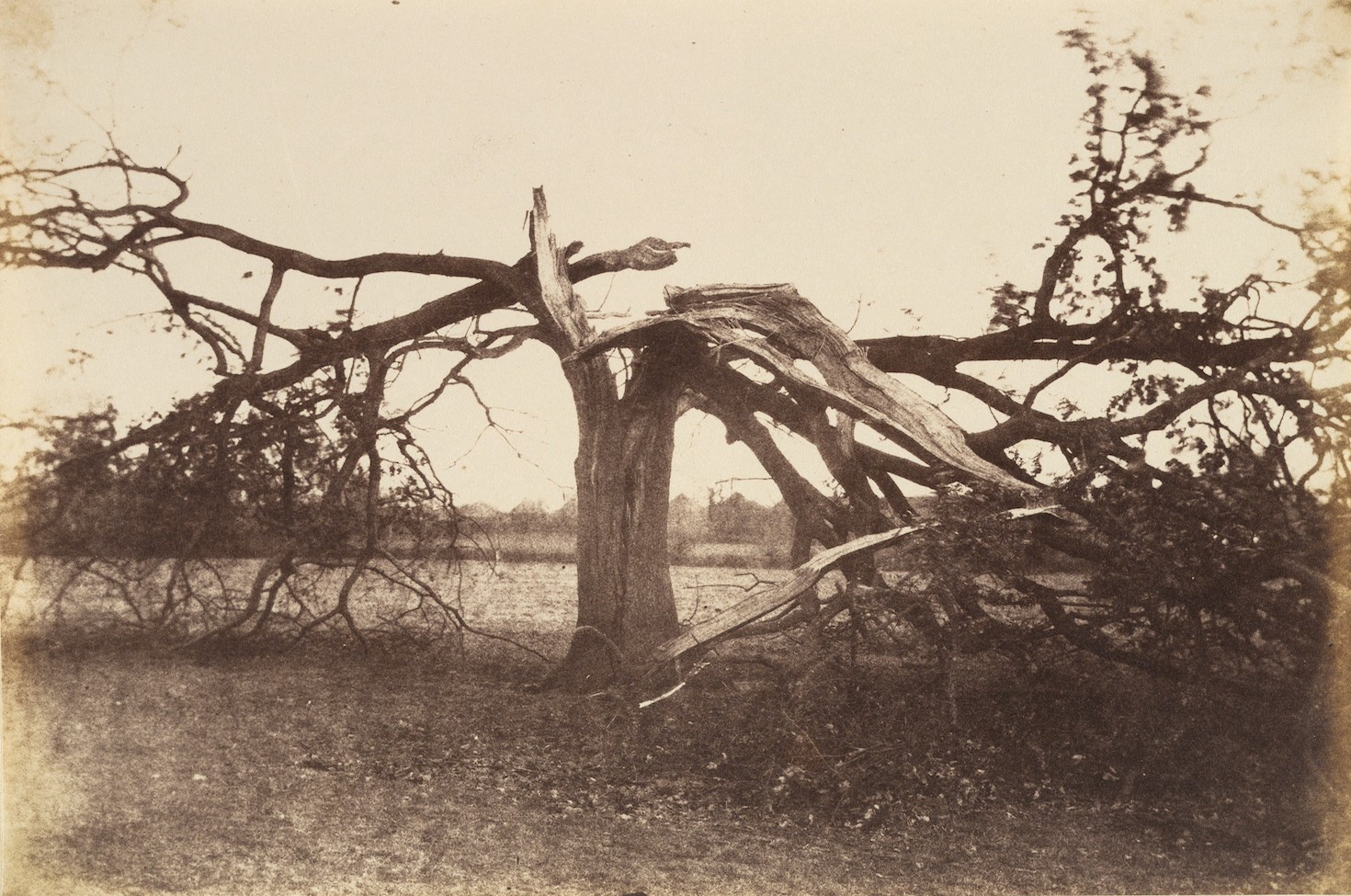
Oak Struck by Lightning, Badger, by Alfred Capel Cure, 1856. The Metropolitan Museum of Art, Purchase, The Buddy Taub Foundation Gift, Dennis A. Roach and Jill Roach, Directors, 2012.
• What a 1968 book gets right (your life is so consumed by technology that you are looking at it at this very moment) and wrong (suppression of lightning by the 1980s) about 2018. (NewYorker.com)
• Karl Marx as Doctor Who, constantly regenerating with a new face and personality. (Aeon)
• The weird world of barely readable history ebooks that humans have been known to actually purchase: “The ‘books’ I was being hired to proofread resembled high school research papers of the sort that any decent teacher would return to the student with the words ‘SEE ME AFTER CLASS’ scrawled furiously in red ink across the top of the page. They usually contained long passages, or entire chapters, that had been copied and pasted directly from Wikipedia or other online sources. Often, the witless plagiarist had copied the text into Word without even bothering to strip the html, so I didn’t have to Google for proof, just click. Who was buying these books, I wondered?” (The Rumpus)
• Remembering Zora Neale Hurston on her 127th birthday. (Shondaland)
• Retracing John Steinbeck and Robert Capa’s footsteps in Russia. (The New Republic)
• The story of Sarah Koten, who “became a lightning rod for the early feminist angst against the injustices of American workplaces of the day, a hero to female labor leaders, and a dark inspiration to other women who would go on to murder men and cite Koten as a role model.” (Slate)
• Fred Bass, owner of Strand Books, died this week. Here’s a story from 1977 about his work: “You never know what you’ll find in a private library. But no matter how much money or how many books we take in, we have to rush out and buy more books. It’s a lot of fun—like a treasure hunt. I’m at it ten hours a day in here. It’s stimulating—I wouldn’t be in any other business. Of course—some days—after lunch—I get depressed. But then there’s England! I’m a partner in seven remainder stores in England. I go there. I go out west. Wherever there are libraries, fresh stock—ahhh.” (New York)
• Writing a biography often entails becoming an obsessive packrat of someone else’s life: “Manuscripts, clippings, transcriptions of interviews, and Xeroxed articles lay strewn about the floor. I crawled around amid the notecards laid out as if for some immense game of Solitaire until I developed rug burns on my knees…Five-by-seven notecards were arranged in little piles; books were scattered everywhere.” (Los Angeles Review of Books)